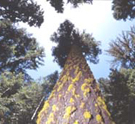Blazes On The New Frontier
By Stephen J. Pyne
(This essay originally appeared in the The Washington Post, Oct. 28, 2007; Page B01, see [here])
It takes only a whiff of smoke for it all to return. Sensations deeper than memory. The streaks of flame. The throb of heat. The gusts of smoke, twisting white and black like exhausted whirlwinds. A rush of adrenaline that can blow your head off. A fatigue so profound that it can rearrange your chromosomes. The sense of a world in such commotion that it seems to slow.
The big fire.
Most fires aren’t big, and most wildland firefighting is a world of routine jobs and small blazes. It’s a life of coming to know a place through its fires as a naturalist might know it through its flowers or mammals. In the deep backcountry, away from lodges and roads, the chief skill is just finding the fire — a smoking snag, a smoldering stump. Only if that first attack fails does the firefight scale up into a campaign that resembles nothing so much as the moral equivalent of war. It’s an intoxicating life, full of flame and fortune.
It was the life I knew for 15 summers as a North Rim Longshot, fighting fires in the Grand Canyon. It was a way of life that defined fire protection from its origins on the frontier of the Old West until very recent times. It was one of the founding narratives of wildland fire, the saga of smoke-chasing, the firefighter as a kind of woodsman. It was a seasonal life for seasonal workers: Fire season was a time in your life before you grew up and went on to family and career. I traded my shovel for a pencil and began a career as a smoke-chaser scholar, tracking down the long history of humanity and fire around the world.
But over the past 15 years or so, this culture of fire has encountered a dramatically different environment. The names for the new fire frontier vary — the wildland-urban interface, the I-zone, the intermix. They all describe the mingling of exurban developments with lands that are uncultivated or wild, a kind of ecological omelet. America is recolonizing its once-rural countryside. In the East, this means houses sprouting on former fields and woodlands; in the West, on ranches and landscapes abutting the public domain. The city and the wild mix in metastable compound.
